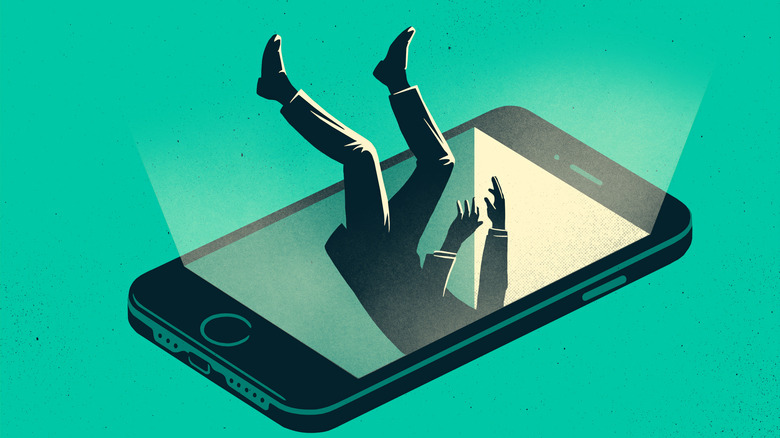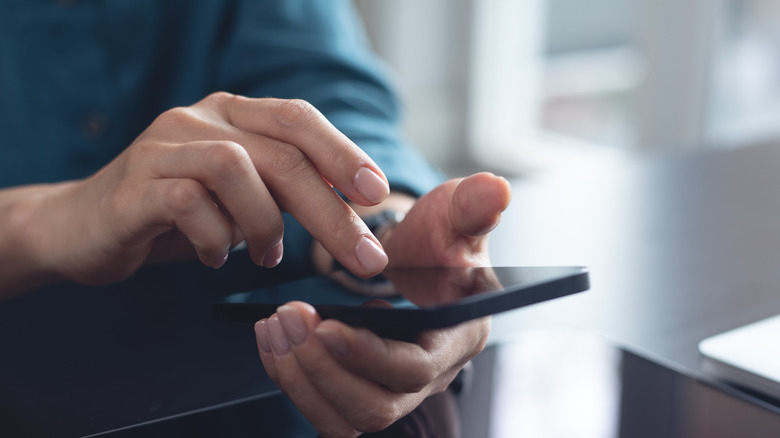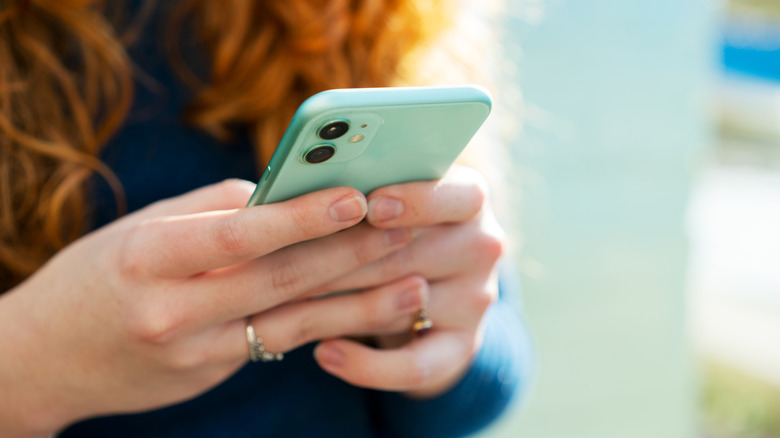If Your Memory Seems Worse, Take A Look At Your Smartphone Screentime
We may receive a commission on purchases made from links.
Technology has been a part of our lives for decades now, and as more and more devices arrive, there have been more and more warnings about the risk they pose. Everybody who grew up in a pre-smartphone age will likely remember being told about the dangers of TV rotting our brains, and while there might be a lack of evidence to back up our parents' warnings about our eyes turning square if we sat too close to the screen, it turns out there actually is scientific backing for the idea that TV can have a negative impact on our brains.
In a 2022 study, Dr. Ryan Dougherty from Johns Hopkins Bloomberg School of Public Health in Baltimore, examined viewing habits of 599 American adults between 1990 and 2011. He found that individuals who watched an above average amount of TV had less gray matter in 2011 than they did in 1990. It literally shrank their brains.
Today, concerns about TV have been largely eclipsed by questions about whether artificial intelligence is good or bad or whether our smartphones are slowly turning us all into dullards. While the former remains an open question, the answer to the latter is fast becoming an unequivocal "yes." That is to say, research has suggested that higher smartphone use leads to memory recall problems as well as concentration issues.
The link between smartphones and memory problems
Whether we like it or not, smartphones are ubiquitous. These devices truly changed the world, and while we're inundated with tech boosterism in the modern age, there is growing concern about just what these handheld tethers to the internet are actually doing to our brain. As it turns out, much like with the whole "TV rots your brain" thing, there is evidence that smartphones have an observable negative impact on our brains. A 2020 study published in PLoS One looked at the effect of these devices on learning and memory in undergraduate students. It involved 119 participants completing a memory task alongside what's called a Smartphone Addiction Scale, which measured how much the respondents used their phones. The study also included a working memory task which tested to see if participants' performance was affected by the presence or absence of their smartphone.
The results indicated that participants whose phones were absent had higher accuracy compared to those whose phones were present, suggesting that smartphone presence has a moderate effect on our working memory ability. Researchers also included a question to test for how often participants thought about their phone during the test and found a significant negative relationship between those who thought about their smartphone often and memory recall accuracy.
Interestingly, the main factors that were shown to affect memory recall were the presence of smartphones and participants' frequent thoughts about their device. High scores on the Smartphone Addiction Scale, in contrast, didn't appear to have any major effect on memory recall.
Smartphones aren't just causing issues with our memory
At this point, the idea that smartphones can have adverse cognitive effects isn't really in doubt, and it's not just memory that's affected by these devices. A 2023 study published in Scientific Reports involved participants aged between 20 and 34 who were asked to perform a concentration and attention test. The researchers conducted these tests both with and without smartphones being present and the results implied that the mere presence of a smartphone resulted in lower cognitive performance overall, adding further evidence to the PLoS One study's findings.
This is, lamentably, just the tip of the smartphone iceberg. Former Google product manager Tristan Harris has been one of the most outspoken critics of smartphone and social media addiction, and has been working tirelessly to warn of the dangers of smartphone addiction. His 2017 TED Talk "How a handful of tech companies control billions of minds every day" expounded on how our attention is being co-opted and how smartphones are an essential tool in that rather insidious enterprise.
Speaking from direct experience, Harris has talked widely and openly about how apps and content are intentionally designed to be habit-forming, delivering small dopamine hits with every notification and slowly molding us into obedient habitual smartphone users whose attention can be harnessed for profit. It's not just a few whistleblowers warning about this, either. Psychiatrist, author, and chief of Stanford University's Dual Diagnosis Clinic, Dr. Anna Lembke, wrote a book about the problem, entitled "Dopamine Nation" in which she urges smartphone users to take a different approach to their devices, with the author telling The Guardian "We're losing our capacity to delay gratification, solve problems and deal with frustration and pain in its many different forms." Whether smartphones can have adverse affects, then, isn't in question, and working memory issues are just the start of it.


